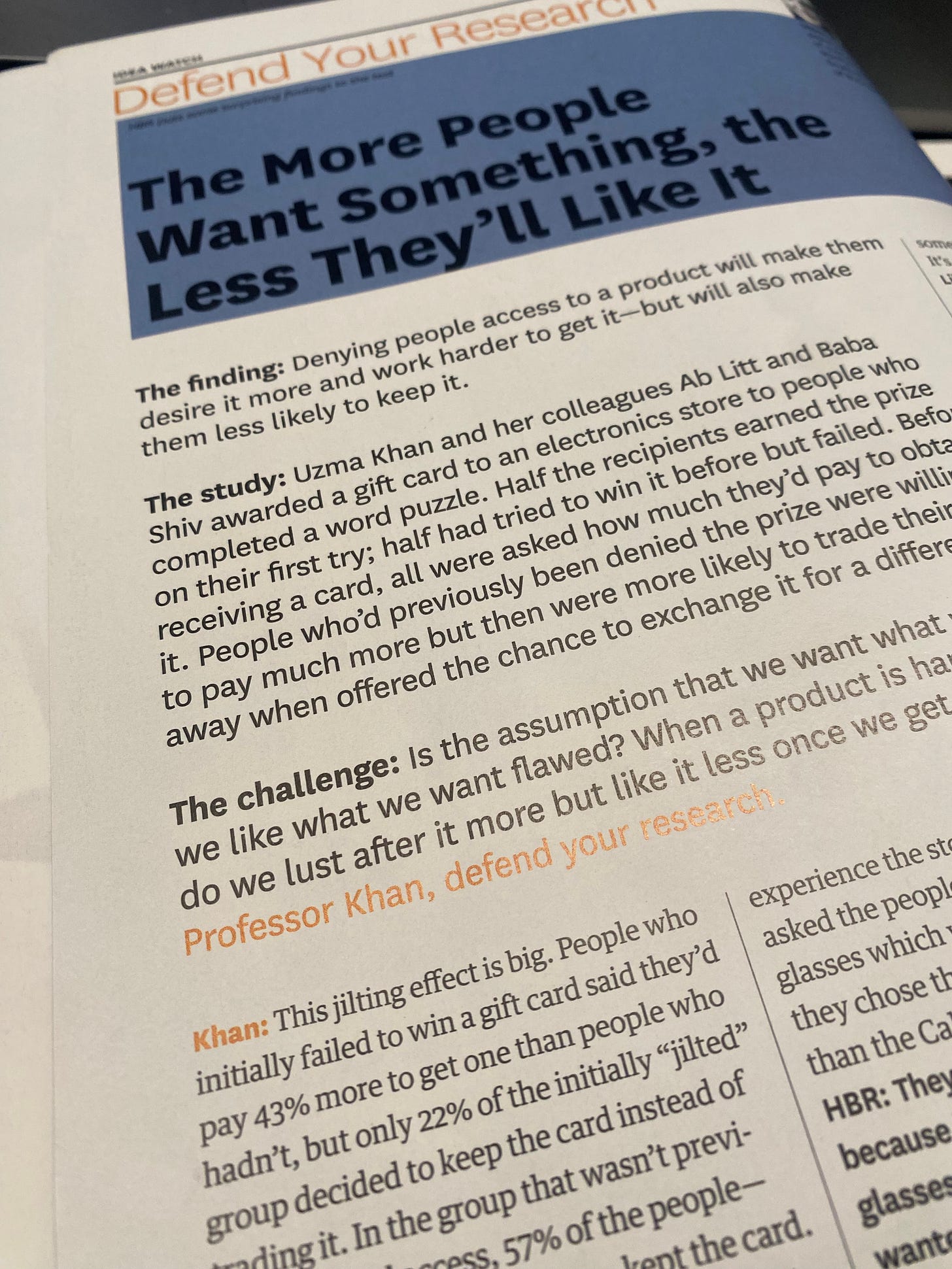[HBR Takeaways] The More People Want Something, the Less They'll Like It
Harvard Business Review - June 2010
This brief explores research by Uzma Khan, Ab Litt, and Baba Shiv on the surprising relationship between desire, effort, and actual satisfaction with products. Their findings challenge common assumptions about consumer behavior and have practical implications for product strategy and marketing.
Core Insight
When people are denied access to a product, they tend to want it more and are willing to exert greater effort—or pay a higher price—to obtain it. However, paradoxically, this heightened desire does not lead to stronger attachment. In fact, people who work harder to get something may be less likely to keep or value it once they have it.
Study 1: Effort and Ownership
Researchers divided participants into two groups to complete a word puzzle:
Group A won the prize (a product card) on their first attempt.
Group B failed to win initially but were later offered the same prize.
Participants were then asked two questions:
How much would you pay to get the item?
Would you keep the prize?
Findings:
Group B (initially denied the prize) was willing to pay 43% more than Group A.
Despite this, only 20% of Group B chose to keep the item—compared to 57% of Group A.
This shows that wanting something doesn't always translate to valuing it once obtained.
Study 2: Brand Preference Under Scarcity
In a second experiment, participants evaluated two watch brands: Guess and Calvin Klein.
One group was told they could receive a Guess watch.
The other group was informed that Guess watches had run out.
Afterward:
Those denied the Guess watch rated Calvin Klein higher in brand appeal.
But when asked which watch they wanted to receive, they still chose Guess.
Even more curiously, participants often justified their choice by referencing unrelated brand associations—such as having worn Guess glasses—suggesting a desire to resolve cognitive dissonance.
Theoretical Implication
These findings contradict the assumption that desire and liking go hand in hand. The researchers argue that:
Desire and liking are distinct psychological systems.
Wanting something more doesn't mean you'll enjoy it more—and in some cases, intensified desire may even reduce long-term satisfaction.
Summary
Khan, Litt, and Shiv's work reveals a disconnect between how much people want a product and how much they value it after getting it. Scarcity and denial can inflate desire, but that desire doesn’t guarantee retention, satisfaction, or even rational decision-making. This has important implications for how companies manage product launches, scarcity-based marketing, and reward structures.
Key Takeaways
Scarcity increases desire—but not necessarily satisfaction.
Effort can inflate perceived value at the point of acquisition, but not after.
Consumers may rationalize choices post hoc, even when those choices contradict their stated preferences.
Desire and liking are separate forces—and may sometimes conflict.
Product strategy should consider long-term engagement, not just initial appeal through scarcity.




